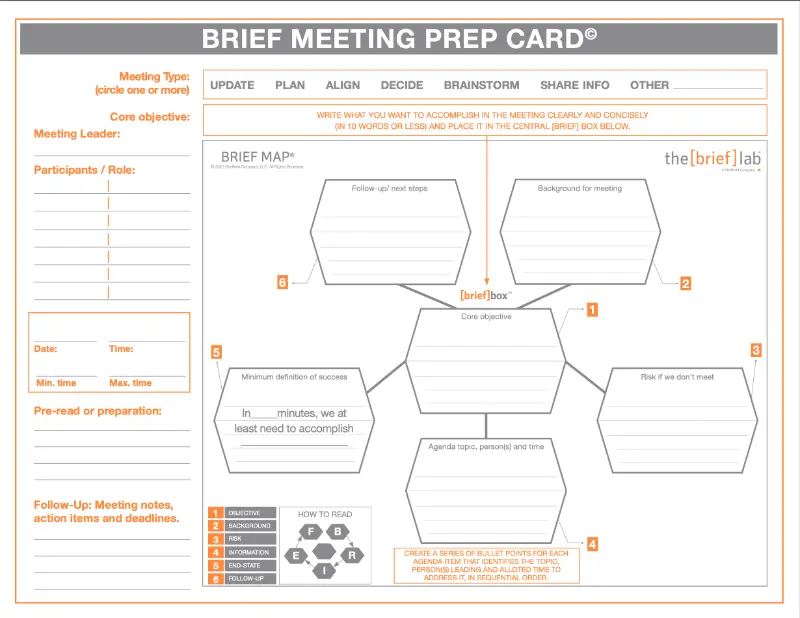Many professionals highlight their activity in status reports, because it seems to prove they’re doing something. And the problem with this is threefold:
- In the Weeds: Many of the activities in those status reports don’t need to be spelled out.
- Employee Time-Burn: The person presenting the status report burns time talking about things that don’t need to be spelled out.
- Leader Time-Burn: A leader (you?) burns EVEN MORE TIME listening to those things that never should have been spelled out.
We’ve all been in THAT meeting in which everyone around the table goes through their own status reports, detailing activity by activity. If there are more than four people, this is a painful problem. How much time is wasted by presenting that level of minutiae? How many times does the conversation end up in the weeds with no achievement spelled out? Everyone leaves the meeting exhausted, frustrated and spinning their wheels.
Leaders need to know when business goals are met, not every step taken to get to those goals. So, why are people compelled to present this level of detail in meetings, emails and voicemails? They mistake activity for outcomes.
Imagine a Shorter Meeting
Picture the same meeting in which those status reports include only information that directly relates to the overall business objective (achievement or outcome) OR information that lets people know a problem exists (risk management; obstacles).
Immediately, you know this is a very different meeting. Shorter. Focused. Actionable. Everyone leaves feeling focused and knowing exactly what to do next.
How much more productive would your team meetings be if everyone knew how to deliver only meaningful, actionable information?
 Activity vs. Achievement: What’s the Difference?
Activity vs. Achievement: What’s the Difference?
“Never mistake activity for achievement.”
Recently, I came across this quote attributed to legendary UCLA basketball coach John Wooden. Wooden won 10 NCAA national championships in a 12-year period as head coach at UCLA, including a record seven in a row. A man who knows how to get things done!
Plenty of leadership gurus hold the same opinion for good reason: Without achievement, activity is just killing time. And “killing time” is a death sentence in business.
If your status reports are filled with phrases such as: “met with,” “spoke with,” “emailed,” “presented,” “created,” “had dinner with,” or “traveled to,” you’re including activities. Activities are things that — while necessary and important — your boss and other senior leaders do not need to hear about UNLESS they have a direct impact on a business objective or goal.
NO: “The product team traveled to San Francisco on Wednesday. We had dinner with the CEO and VP of Procurement.”
YES: “We closed the deal with XYZ over dinner. A new client kick-off meeting is scheduled for June.”
NO: “I interviewed four candidates for the IT position this week, and I’m talking to three more candidates next week.”
YES: “We’re not getting the type of candidates we want for the open IT position.”
NO: “Earlier this week, we installed a new server and distributed five laptops to the accounting team. The software vendor is scheduled to be on-site all day on Thursday.”
YES: “The deployment of the new accounting and CRM software is right on schedule.”
NO: “We sent out 75 employee-satisfaction surveys last week, and we’re getting a lot of responses.”
YES: “We’re on track to retain 5-10% more employees this year.”
You Can Deliver Concise Updates
When was the last time you felt ready — really ready — to explain a project and its status at any moment? Did you know exactly what information to deliver and what “activity” to trim?
Sure, you can try to lead by example by becoming a lean communicator. But teams need more than a single clear communicator if they are to harness the productivity gains that brevity can bring. The Brief Lab’s Brief Online Boot Camp Program may be just what your team needs to learn how to communicate less “activity” and more “achievement.”
After completing this online program (based on the award-winning book BRIEF: Make a Bigger Impact by Saying Less), your team will be able to speak and act more strategically. They’ll know what information to deliver and what to trim. And you can put a stop to long-winded meetings, unclear updates, pointless presentations and confusing conversations.
About the author: Joe McCormack is on a mission to help progressive organizations master concise communication. Joe works with fortune 500 companies and elite special operations units, is the founder of The Brief Lab and author of Brief: Make a Bigger Impact by Saying Less. Follow us on Twitter @TheBriefLab

